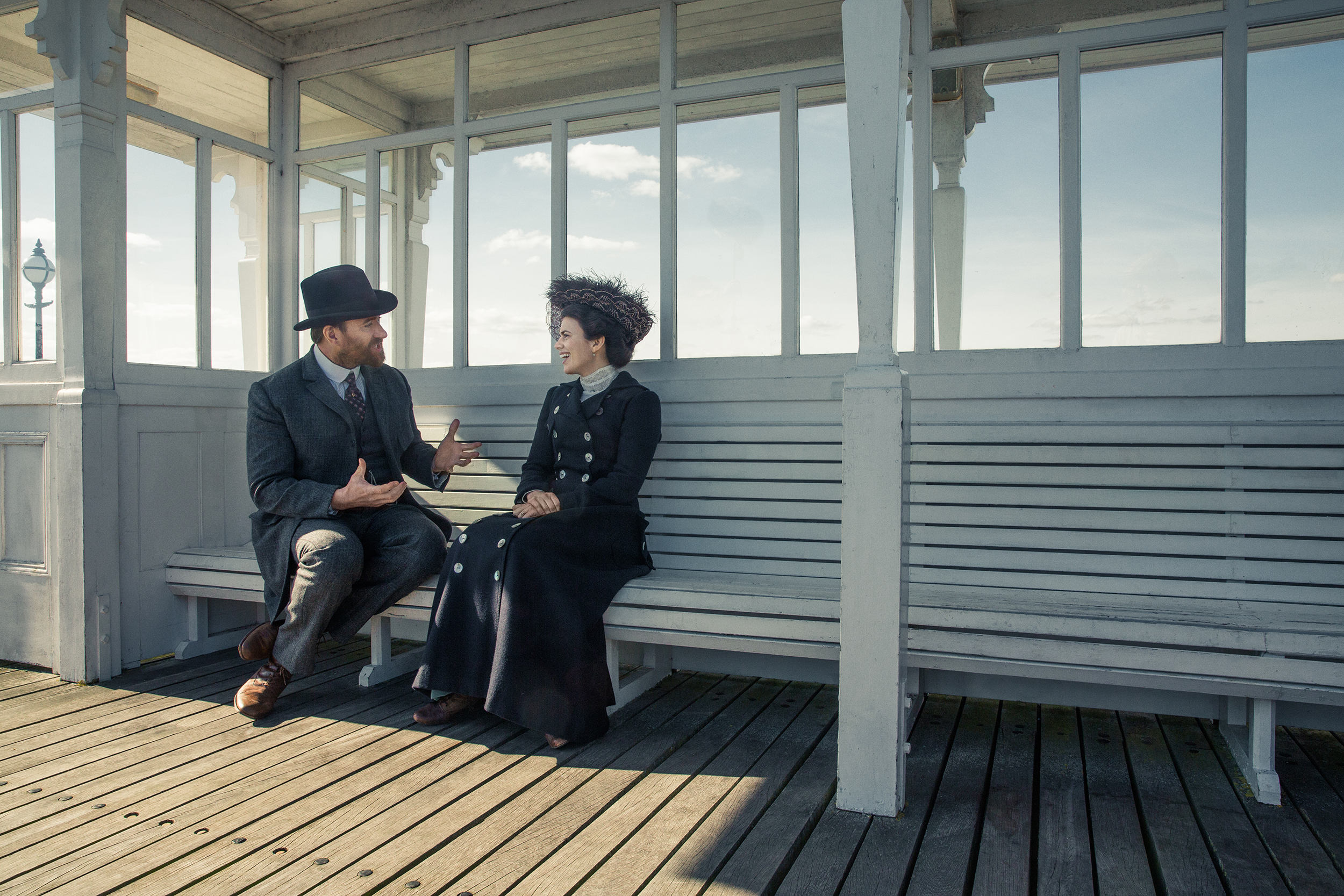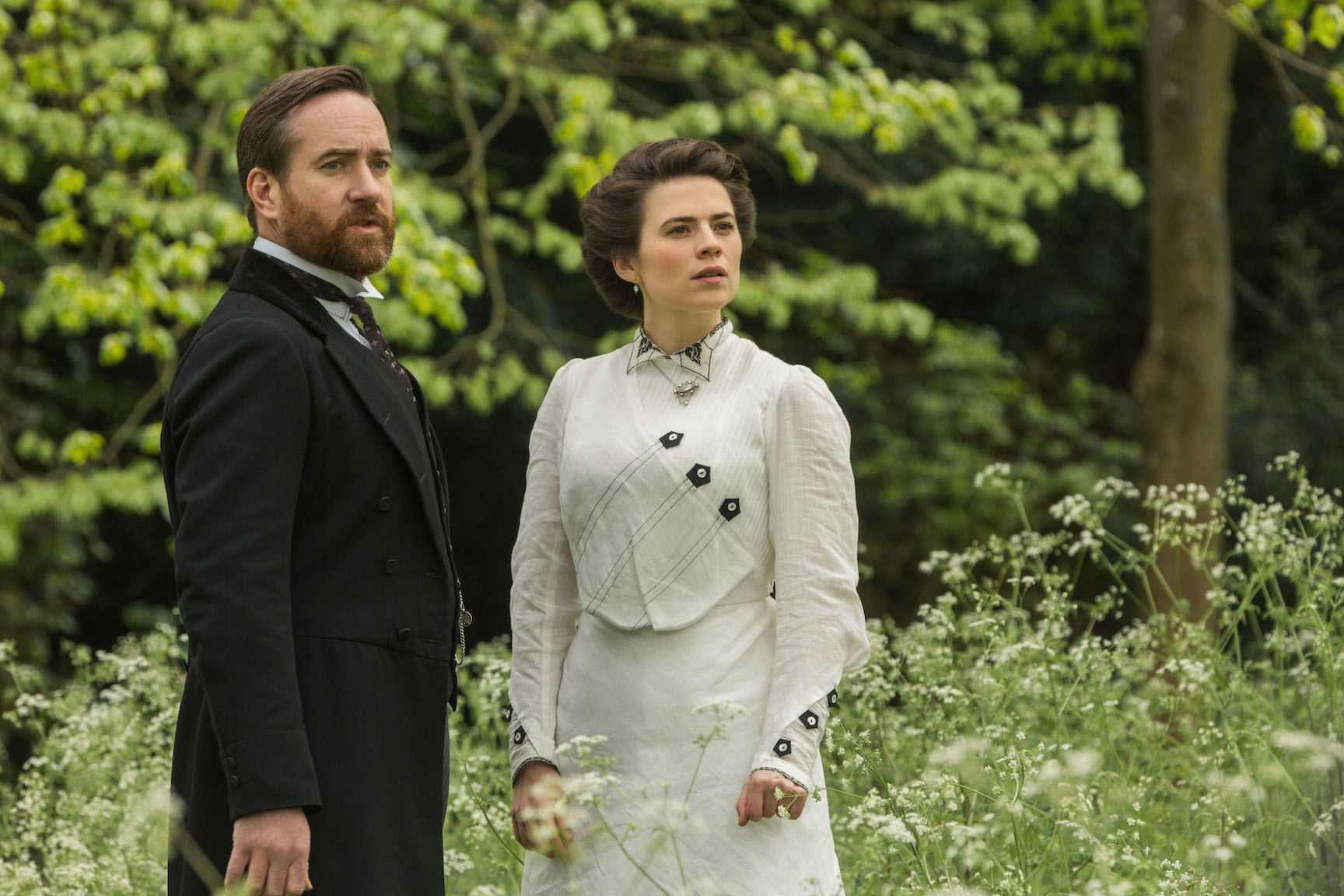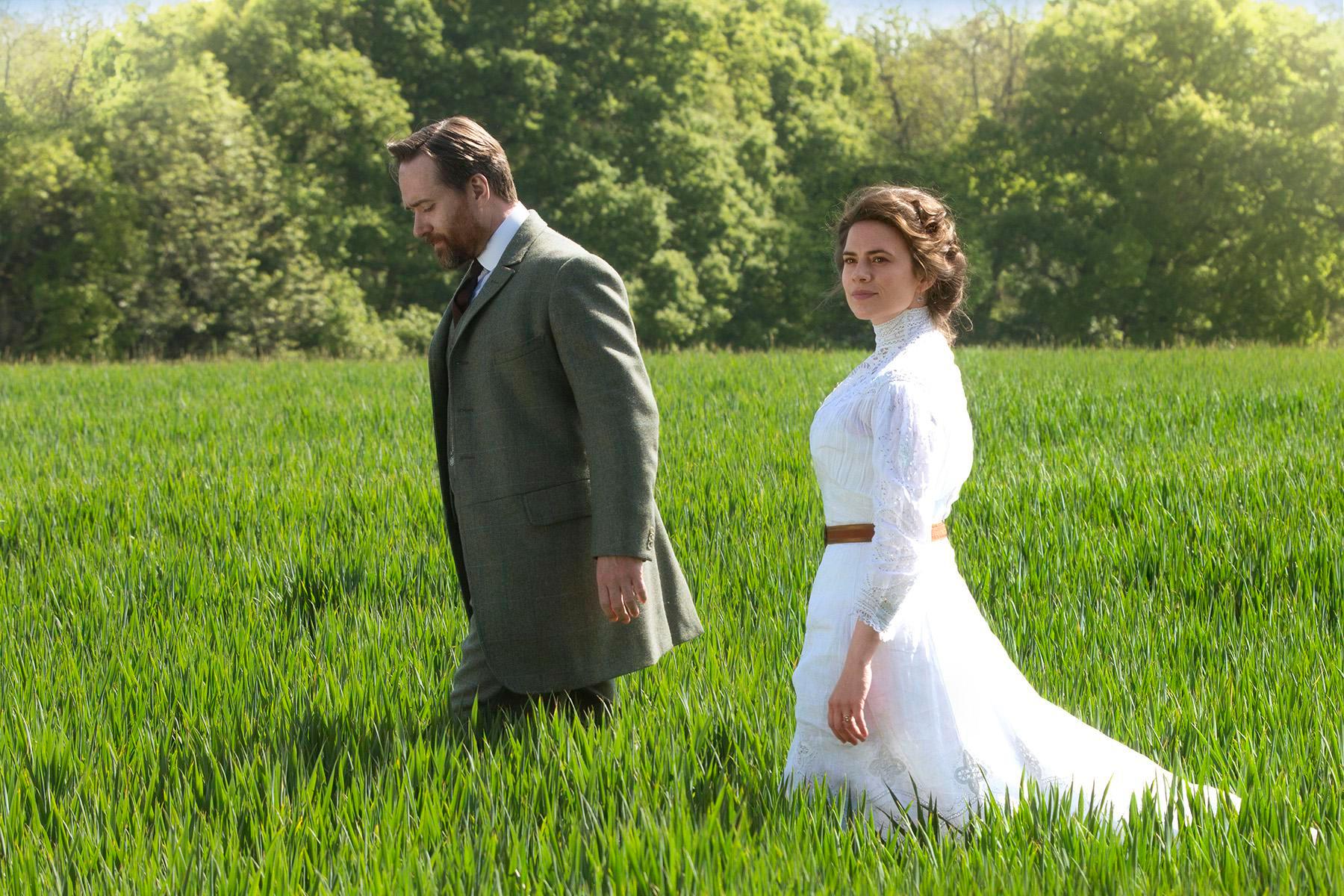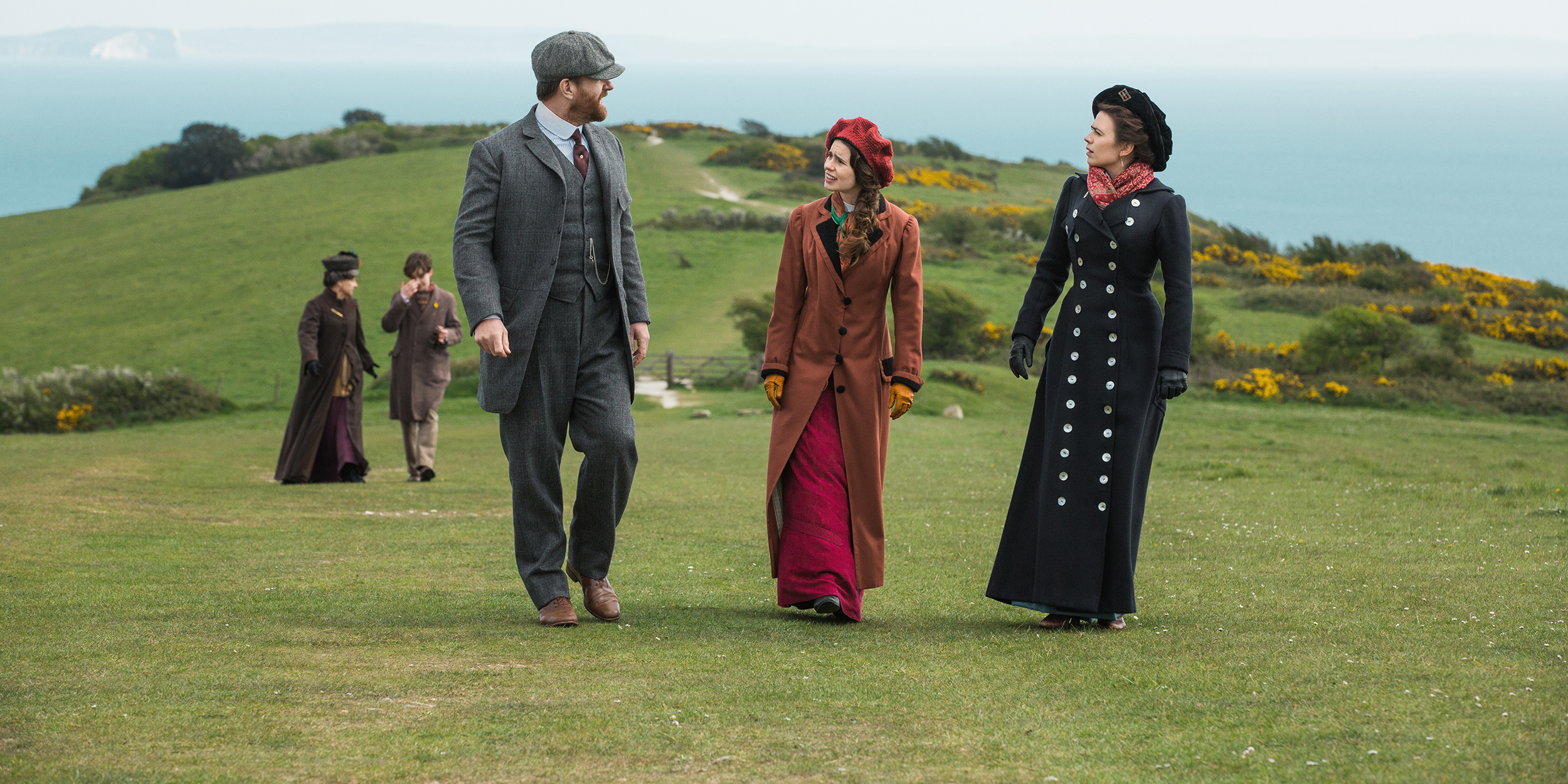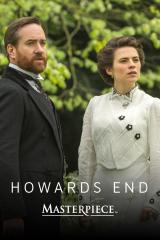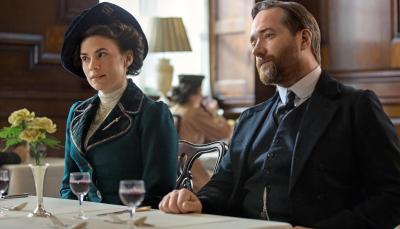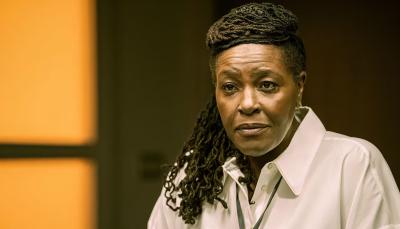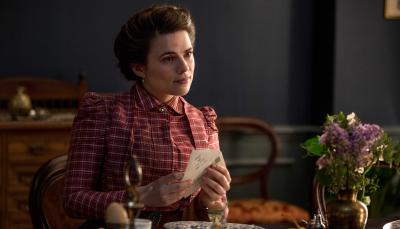Rash Decisions Abound in 'Howards End's Penultimate Episode
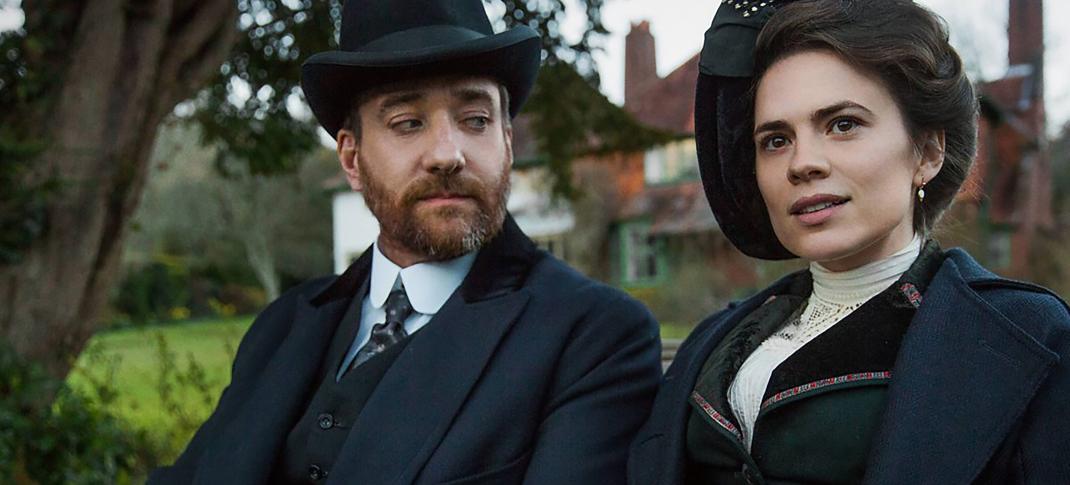
Matthew Macfayden as Henry WIlcox, Hayley Atwell as Maragaret Schlegel in 'Howards End'
©2017 Starz
Last week’s episode of Howards End ended with the Schlegels’ vote to take Wilcox’s London house if it is suitable. This week begins with his arrival to drive Margaret there. As she leaves, Helen says, “Don’t do anything rash.” Be warned — there is plenty of rashness ahead.
Mr. Wilcox, and I think it’s permissible for me to call him Henry now, has a snazzy new motorcar. He’s a bundle of nerves, about to blunder into one of English Literature's worst marriage proposal scenes in English Literature. Henry mentions on the drive over that it is lonely in the evenings (his daughter, Edie, is about to marry), which is quite sweet, but his opening statement sounds like he’s planned an abduction. In an almost incoherent exchange, Henry and Margaret somehow manage to communicate that she’ll send him her answer by mail, and if she says no, of course, he’ll still offer the family the house (which is a vast, chilly Georgian beauty and entirely unsuited to the Schlegel’s bohemian clutter).
Her final response, “Mr. Wilcox, you quite take my breath away”—really, Margaret?— took mine away too, but not in a good way. The house tour is curtailed, and Margaret returns home and faces Helen, who finds it impossible and repulsive that her sister is in love with Henry.
When we meet Henry and the Schlegels next, it’s at Aunt Juley’s house in Dorset, and Margaret has accepted his proposal. Henry finds that Margaret is full of surprises when they decide to hold a “business meeting” to discuss their future marriage. She suggests Kalamata in Greece, where Henry has a current business for their honeymoon; he says it’s not suitable for a lady — no hotels. She ripostes with a mention of a backpacking trip she and Helen took across the Apennines; he retorts that she’ll never have to do that sort of thing again.
For round two, Henry tentatively brings up the issue of being fair to his children. “Oh, you mean money?” Margaret responds to his obvious shock. Then she blithely announces that she has £600 per year, and Henry is dumbfounded and struggles for words, but can’t or won’t tell her his income. We can only assume that neither of them thinks there is a problem here, and I have to admit I almost felt sorry for Henry, who is so far out of his depth.
To add to these looming danger signs, Margaret asks when their wedding day will be, and a male passerby overhears and jeers at her. Henry moves in to defend his claim, glaring at the young man, fists clenched. Margaret mostly ignores the episode, but when they arrive back at Aunt Juley’s house, Henry, inspired by his recent testosterone rush, moves in for a clumsy kiss, which takes her entirely by surprise; she disengages herself and kisses him back with great enthusiasm and sincerity.
(I think she’s won every round so far, but will her luck hold?)
But Margaret still hasn’t solved the problem of where Helen, Tibby, and Aunt Juley will live in London. Wilcox's house isn’t big enough for them all. On the subject of London life, the Basts are not doing well at the other end of the social spectrum. He’s reduced to selling his books to make ends meet because his new job at a bank pays a lower wage. Jacky insists that he write to the Schlegels for help. Henry was wrong: The Porphyrion did not fail. Helen confronts Henry about his advice that Leonard leaves the Porphyrion, and he can’t even remember giving the advice or briefly meeting that “queer, cross boy,” as she describes him.
Margaret is concerned, too, but Henry is more worried about Howards End, where his tenant may be leaving. He rides roughshod over Margaret’s suggestion that they should delay a visit to Howards End and tells Aunt Juley that she wants to go. Similarly, he brutally dismisses Helen’s conviction that they are all responsible for the Basts’ hardship. It’s becoming clear that the sisters are divided and that Margaret is becoming more influenced by Henry: she no longer wears the strikingly vivid clothes of the first two episodes and appears in respectable white.
Meanwhile, things have been going disastrously for the Basts. Leonard has been laid off from his job at the bank; Jacky is sick. Helen visits them after receiving another letter and decides they must go to confront Henry Wilcox, paying for their train tickets and hurting Leonard’s pride once more. He refuses to let her buy them food, while poor Jacky just wants to go home.
Finally, Margaret gets to see Howards End and falls in love. This is the real thing, not her social experiment with Henry Wilcox, and it's lovely to see. While Henry drives off to fetch them a key, she enters the house alone, discovering the front door is magically unlocked. She wanders the house, clearly enchanted, her white dress glowing in the dim light. She suspects she may not be alone, and sure enough, a servant suddenly appears, who blurts out, “I took you for Ruth Wilcox.” (Isn’t that a telling comment.)
Henry’s awful children are still simmering with resentment toward Margaret. Charles is convinced his father’s proposal is part of a sinister plot to take possession of Howards End and tells his sister Edie that if they are exposed to the Schlegels’ “artistic beastliness” at the wedding, he’ll “put his foot down.” As you may recall, Edie is marrying the beta-male fiancé we met at Henry’s country property in Shropshire. Margaret and Henry arrive for the wedding together; as they step out of their car, Henry orders Margaret to be taken to her room to refresh herself after the journey, as a lady of the time would. Margaret wishes to explore the gardens but acquiesces; she's choosing her battles.
Helen arrives with the Basts toward the end of the festivities when staff are clearing up the tent, and Margaret, spotting the new arrivals, is horrified at what Helen has done. Interestingly, she turns into Henry — critical, barking orders, and taking over. She scoffs at Helen’s claim that the Basts are starving and tells Helen to take Leonard and Jacky to the village inn. Margaret then reports to Henry, lurking in the woods, and asks him to find Leonard a job. He agrees, and it’s all very civilized and cordial if patronizing.
But Jacky, ignored by them all, has been offered champagne and is well on her way to being drunk. Her inhibitions lowered by alcohol, she starts addressing Henry affectionately by his first name (and by her nickname for him, “Hen”), that they once knew each other very well. Margaret is confused, Henry is embarrassed, and then angry. He tries to shift the blame onto Margaret, suggesting that her interest in the Basts was a set-up to destroy him, and he strides away from her, secure in his entitlement and power. He even accuses Margaret of indelicacy when she asks him if Jacky is his mistress and proceeds to slut-shame both women:
In the inn, Leonard tenderly tucks Jackie into bed. He asks if that was “the man she knew in Cyprus,” and she confesses she would never have come if she had known their possible benefactor. Leonard grows up just a little here and agrees that neither should have come. For a moment, at least, their quiet declarations of love sound sincere.
Helen is full of questions; Leonard tells her about his marriage to Jacky, which has consequently caused him to be cut off by his family, who come from a nonconformist religious background. They objected to Jacky because of her past. (How did they know? Just a snap judgment?). But Leonard values the companionship of their relationship and wants to settle down. Books and music, he’s decided, are not so important anymore. Helen is devastated to hear that Leonard now believes that you must have money to appreciate the arts—it goes against all she believes in.
They fall silent, and Leonard reaches across her to close the window shutter, which ends the episode.
This post was originally published January 2020. Updated 11.23.2024
The 2017 adaptation of Howards End will continue on Sundays at 8 p.m. ET on most local PBS stations and the PBS app. All four episodes are available to stream on the PBS Masterpiece Prime Video Channel and for members of PBS Passport.

